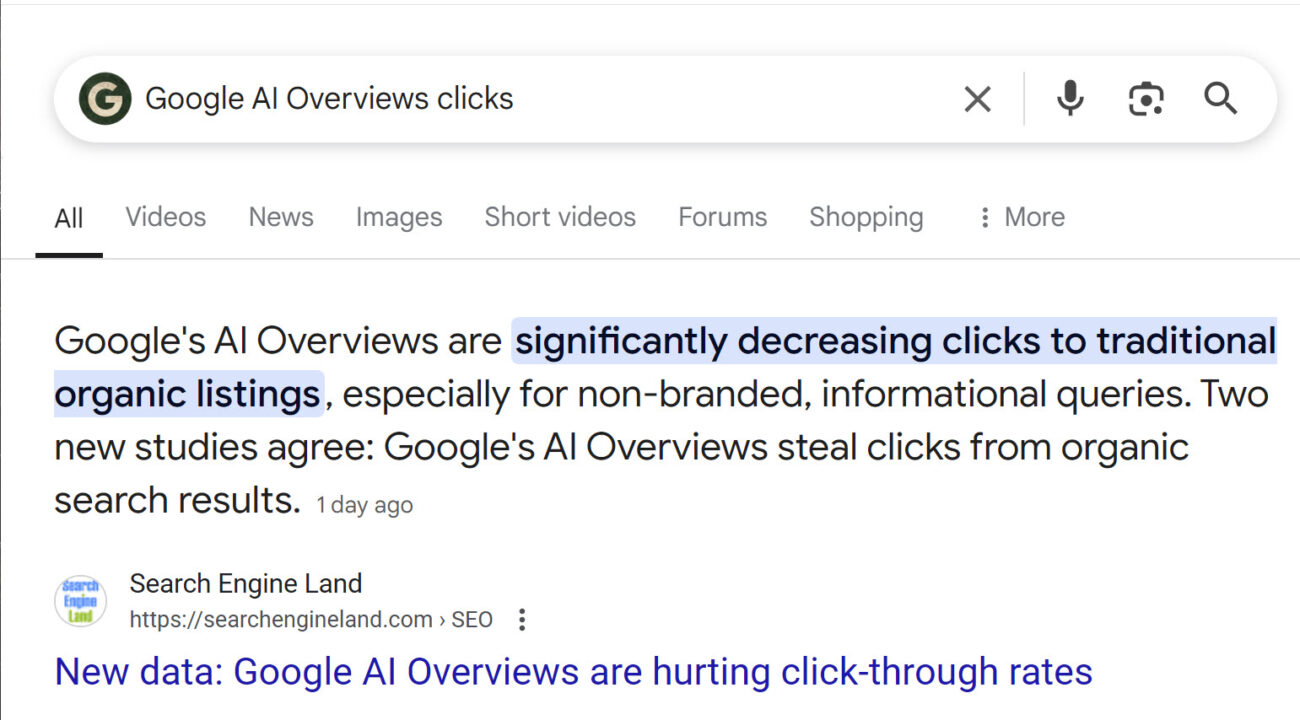On November 8th, Google rolled out a significant update to its Google Reviews platform, ushering in changes that enhance the user experience and place a greater emphasis on the quality and authenticity of reviews. These updates not only benefit consumers seeking reliable information but also empower reviewers to showcase their expertise and provide valuable insights.
The update finished rollout on December 7. Here, we’ll explore the key modifications Google has introduced and how they impact both reviewers and those seeking reviews.
Key Changes in Google Reviews
The Google Reviews update is part of a larger process by Google to organize and analyze data more effectively on the basis of its specific purpose for users. This requires algorithmic tweaks for different types of content.
The proliferation of AI content has also made it difficult for both users and crawlers to distinguish what’s helpful. A renewed focus on the following qualities will hopefully help Google prioritize the most useful info, subjecting users to less spam.
Emphasis on Quality
Google’s update places a strong emphasis on high-quality reviews that offer genuine insights into products, services, destinations, games, movies, and more. See below for details on what exactly Google means by “high quality.”
Expertise and Evidence
Reviewers are encouraged to demonstrate their expertise through their reviews, backed by evidence such as visuals, audio, or links to personal experiences, enhancing the credibility and authenticity of their assessments.
Comprehensive Coverage
Reviews should cover multiple facets, including quantitative measurements, comparisons with competitors, benefits and drawbacks, evolution of products or services, and any other key decision-making factors.
Discoverability Enhancement
The goal is to make well-crafted reviews more discoverable in Google Search and across Google’s platforms, ensuring that users find the most relevant and credible information. That means promoting reviews that meet Google’s standard of intelligible writing, factual knowledge, and evidence in the form of attached photos/videos.
Writing High-Quality Google Reviews
Google provides comprehensive guidelines for crafting high-quality reviews. These recommendations aim to elevate the usefulness and credibility of reviews, helping readers make informed decisions. Here are the key practices they ask reviewers to follow:
- Evaluate from a user’s perspective.
- Demonstrate that you are knowledgeable about what you are reviewing—show you are an expert.
- Provide evidence such as visuals, audio, or other links of your own experience with what you are reviewing, to support your expertise and reinforce the authenticity of your review.
- Share quantitative measurements about how something measures up in various categories of performance.
- Explain what sets something apart from its competitors.
- Cover comparable things to consider, or explain which might be best for certain uses or circumstances.
- Discuss the benefits and drawbacks of something, based on your own original research.
- Describe how a product has evolved from previous models or releases to provide improvements, address issues, or otherwise help users in making a purchase decision.
- Focus on the most important decision-making factors, based on your experience or expertise (for example, a car review might determine that fuel economy and safety are key decision-making factors and rate performance in those areas).
- Describe key choices in how a product has been designed and their effect on the users beyond what the manufacturer says.
- Include links to other useful resources (your own or from other sites) to help a reader make a decision.
- Consider including links to multiple sellers to give the reader the option to purchase from their merchant of choice.
- When recommending something as the best overall or the best for a certain purpose, include why you consider it the best, with first-hand supporting evidence.
- Ensure there is enough useful content in your ranked lists for them to stand on their own, even if you choose to write separate in-depth single reviews.
What Does The Google Reviews Update Mean for Marketers?
The value of a positive review (especially a detailed and informative one) continues to increase in Google’s eyes. The impetus is now on businesses to encourage customers to create these reviews.
Marketers must walk a thin line between making it as easy as possible for your customers to leave reviews without being pushy or offering incentives that go against platform guidelines. It’s a good idea to send out a review request after successfully rendering services – make sure to link to a specific platform where you’re trying to grow your presence.
Giving discounts to customers who leave reviews can be a great encouragement, but most platforms disallow businesses requesting only positive review content. Before sending out an email blast asking for reviews, make sure you’re not including dissatisfied customers (although you should contact these customers in a different context for private feedback!).
However, there’s nothing wrong with reminding reviewers to focus on Google’s best practices and on quality and originality – these attributes ensure the reviews will matter the most to Google’s algorithm.
Remember, the aim is to provide value through expertise, authenticity, and comprehensive evaluations in each review, enriching the experience for reviewers, consumers, and marketers.
For more information on changes in search engine algorithms, check out this article. And for other great SEO articles, be sure to check out our Resources library.





